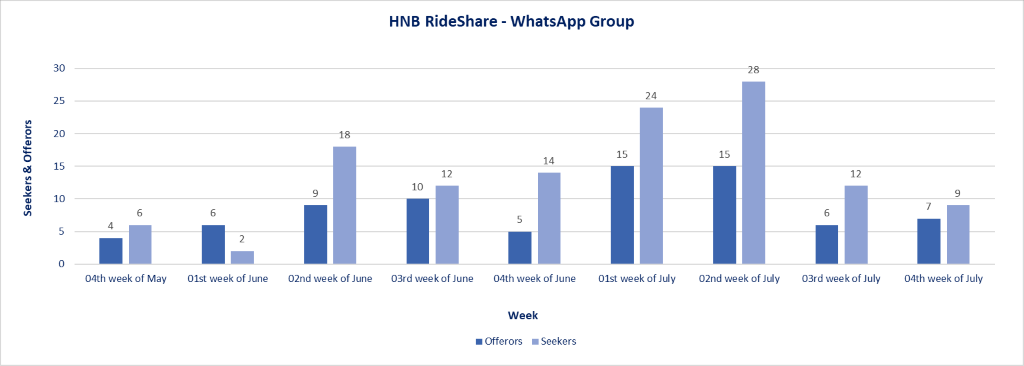
 HNB employees who have made use of the ride sharing group launched by HNB
HNB employees who have made use of the ride sharing group launched by HNB
In an effort to lower the cost of transportation and reduce fuel consumption while improving the organisation’s carbon footprint, Sri Lanka’s leading private sector bank HNB PLC recently introduced a ‘rideshare’ group for its employees.
An extension of the HNB’s flagship ‘Walk the Talk’ campaign, the initiative has aided the Bank in reducing its carbon footprint significantly this year with employees opting for eco-friendly modes of transportation. Close to 400 HNB employees have joined the WhatsApp Group, either seeking or offering their colleagues rides to the office.
“Given the fuel crisis faced by Sri Lanka and the challenges many of our employees faced in reaching office or other destinations, we introduced several alternative modes of travelling including cycling. Since the group was launched on WhatsApp, we have seen a substantial increase in the number of employees who have joined us in taking eco-friendly and economical modes of transportation.
“Today, we are proud of our initiative because, as the saying goes, ‘small efforts yield significant results’. This initiative is not just helpful in reducing carbon emissions and traffic. It also strengthens the bonds between colleagues who share their ride to the office. We plan on organising such programs to promote sustainable modes of transportation,” HNB DGM -CHRO/CTO L. Chiranthi Cooray said.
Notably, the bank also took measures to offer bicycles at discounted rates of up to 20% through HNB SOLO for employees who wished to cycle to work. Recently, HNB also partnered with three private banks, Sampath Bank, Nations Trust Bank, and DFCC Bank, to promote cycling as a more sustainable mode of commuting to work.
HNB’s ‘Walk the Talk’ campaign encourages employees to choose a healthier, more sustainable way of life and an environmentally friendly commute while minimising their potential carbon footprint and reducing fuel consumption.
